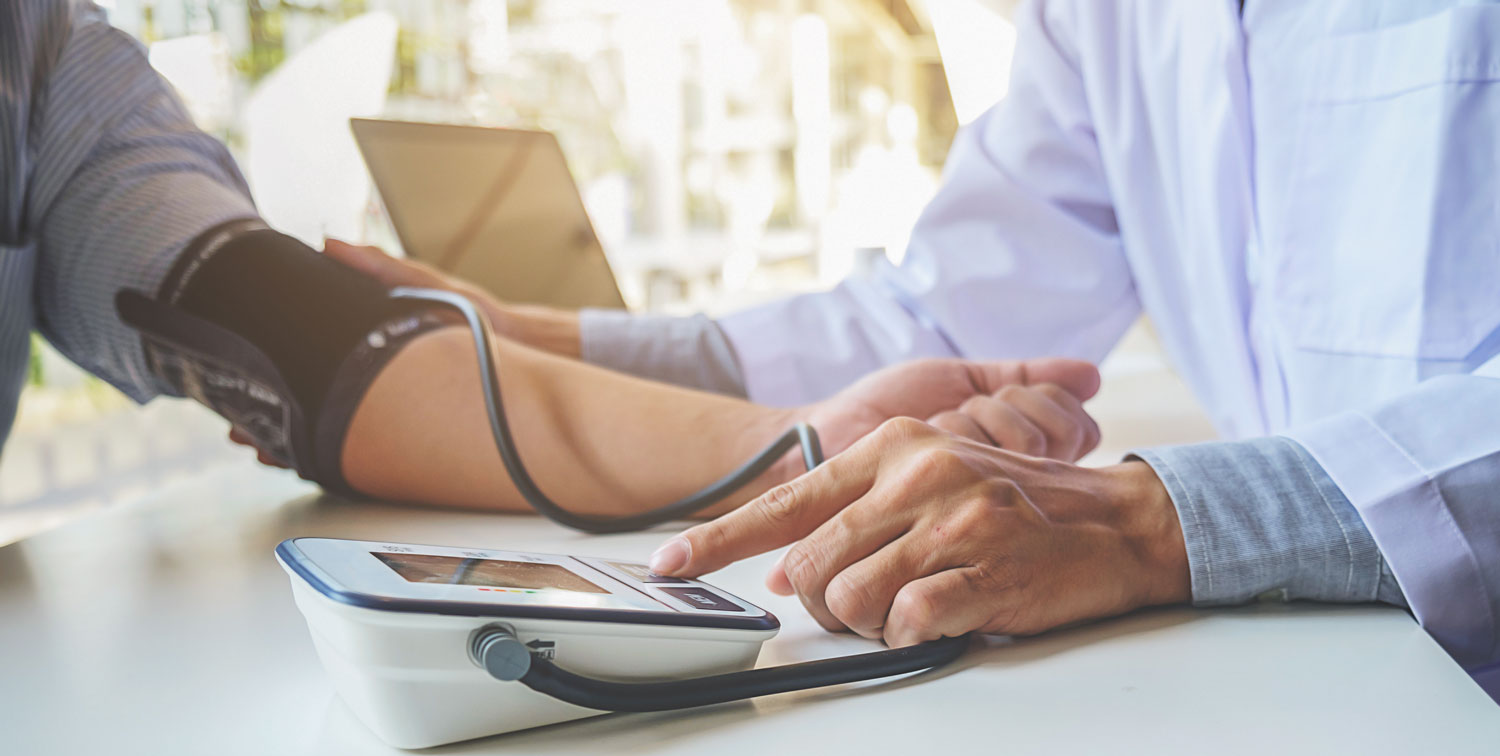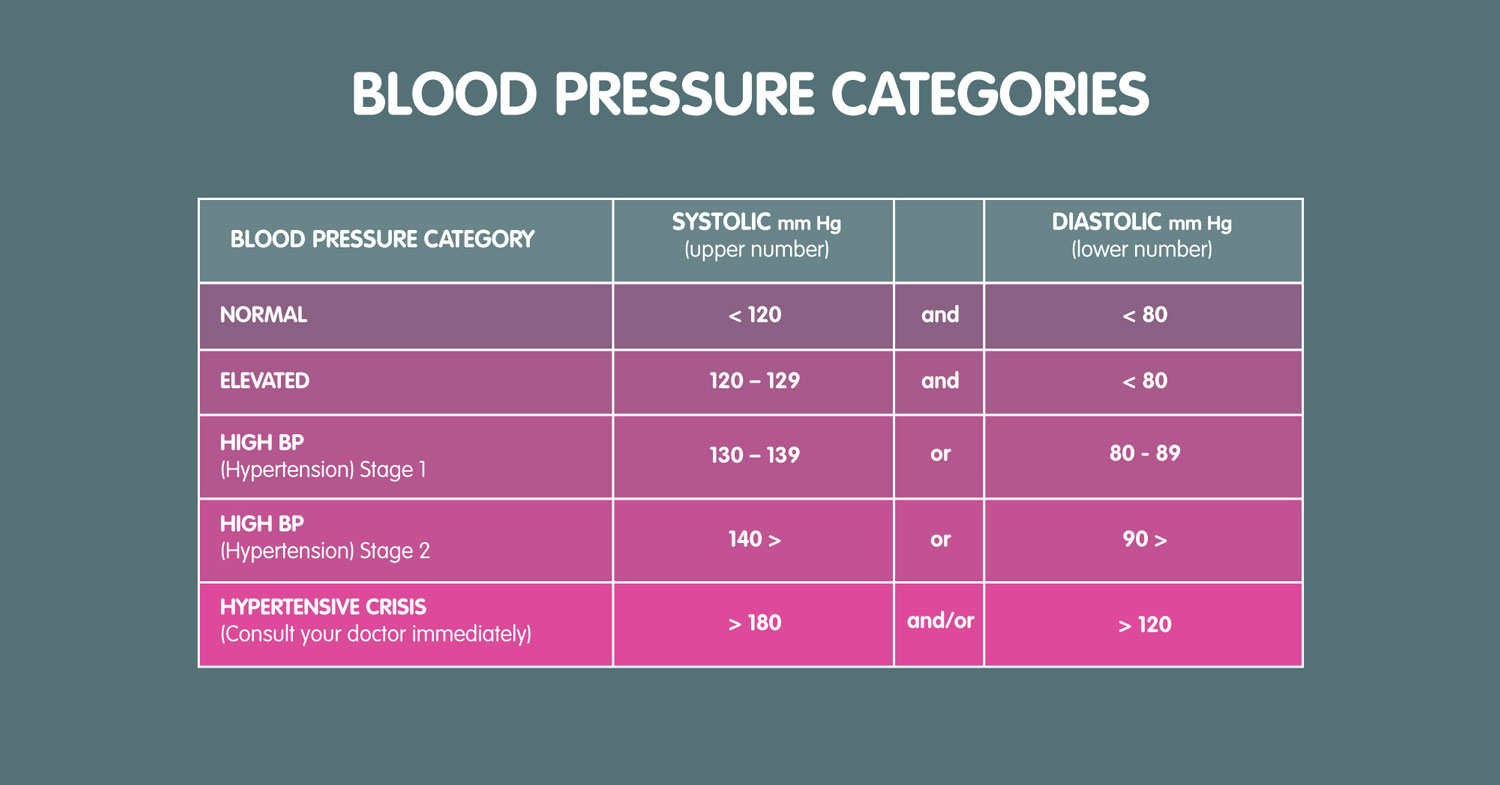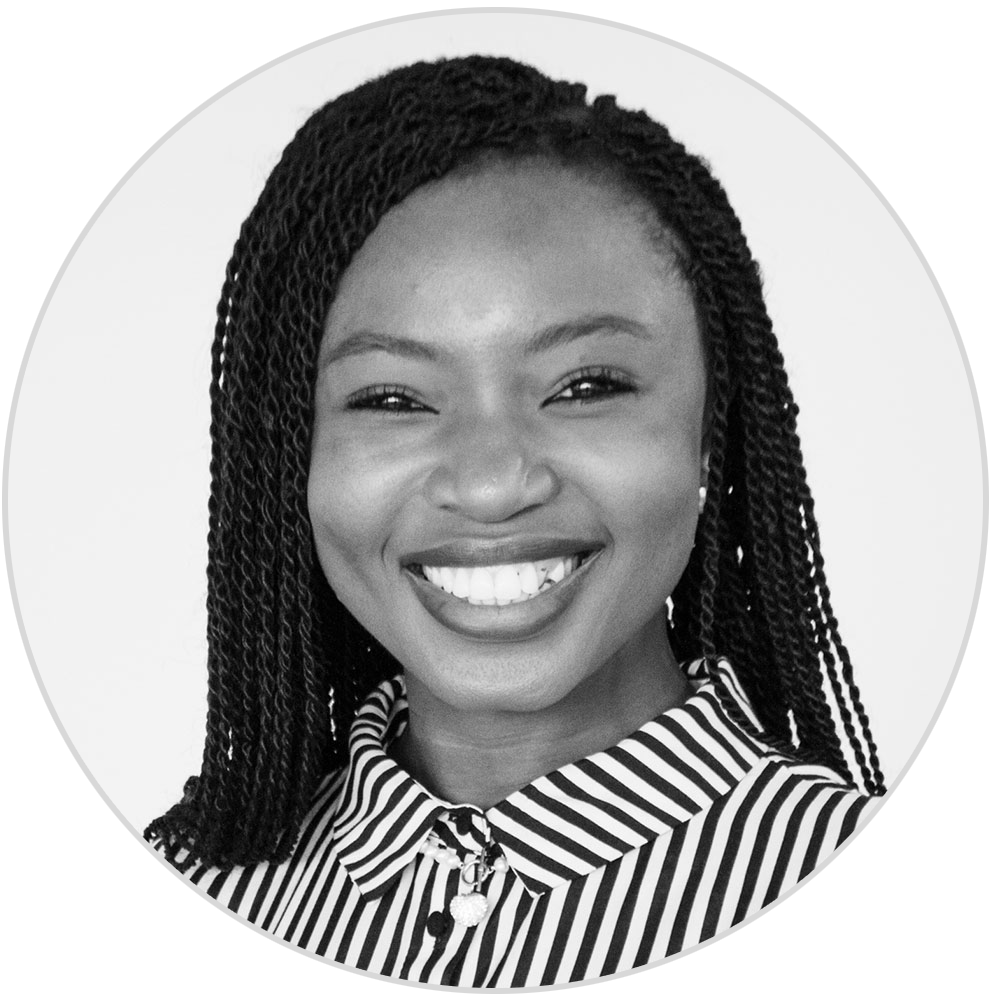
23 Apr Am I at risk of high blood pressure?
Over a billion people around the world have hypertension or high blood pressure, which means it is pretty common.
Hypertension should be taken seriously. In the long run the raised force of blood against your artery walls may lead to serious health problems, including heart attacks and stroke.
High blood pressure generally develops over many years, and it affects nearly everyone eventually. Fortunately, it can be easily detected. And once you know you have high blood pressure, you can work with your doctor to control it.
Blood pressure is measured by two numbers, the top number (systolic) which is the amount of blood your heart pumps and the bottom number (diastolic) which is the amount of resistance to blood flow in your arteries.
Guidelines to categorize blood pressure have recently changed to show that even a moderate increase in blood pressure can significantly increase your risk for developing heart disease.

Hypertension in the UAE
Three separate studies in Dubai, Abu Dhabi and Al Ain all suggest that around a third of the UAE population has hypertension (high blood pressure), which was announced during the closing ceremony of the May Measurement Month 2018 (MMM18) awareness campaign.
MMM18 was held in May last year around the world, measuring people’s blood pressure and raising awareness about hypertension. Both expats and Emiratis’ vitals were monitored.
UAE’s 30 per cent prevalence as indicated by these three studies, is the same as England; much higher than Canada (19.5 per cent) and marginally more than the US (29.1 per cent), based on national surveys.
Risk factors
High blood pressure has many risk factors, including:
- The risk of high blood pressure increases as you age. Until about age 64, high blood pressure is more common in men. Women are more likely to develop high blood pressure after age 65.
- Family history.High blood pressure tends to run in families.
- Being overweight or obese.The more you weigh the more blood you need to supply oxygen and nutrients to your tissues. As the volume of blood circulated through your blood vessels increases, so does the pressure on your artery walls.
- Not being physically active.People who are inactive tend to have higher heart rates. The higher your heart rate, the harder your heart must work with each contraction and the stronger the force on your arteries. Lack of physical activity also increases the risk of being overweight.
- Using tobacco.Not only does smoking or chewing tobacco immediately raise your blood pressure temporarily, but the chemicals in tobacco can damage the lining of your artery walls. This can cause your arteries to narrow and increase your risk of heart disease. Second hand smoke also can increase your heart disease risk.
- Too much salt in your diet.Too much sodium in your diet can cause your body to retain fluid, which increases blood pressure.
- Too little potassium in your diet.Potassium helps balance the amount of sodium in your cells. If you don’t get enough potassium in your diet or retain enough potassium, you may accumulate too much sodium in your blood.
- Drinking too much alcohol.Over time, heavy drinking can damage your heart. Having more than one drink a day for women and more than two drinks a day for men may affect your blood pressure.
If you drink alcohol, do so in moderation. - High levels of stress can lead to a temporary increase in blood pressure. If you try to relax by eating more, using tobacco or drinking alcohol, you may only increase problems with high blood pressure.
- Certain chronic conditions.Certain chronic conditions also may increase your risk of high blood pressure, such as kidney disease, diabetes and sleep apnea.
Although high blood pressure is most common in adults, children may be at risk, too. For some children, high blood pressure is caused by problems with the kidneys or heart. But for a growing number of kids, poor lifestyle habits, such as an unhealthy diet, obesity and lack of exercise, contribute to high blood pressure.
Blood Pressure in Ramadan
As we approach Ramadan, it’s important to consider how this may affect those with high blood pressure. With fasting there are no specific guidelines however there are general recommendations; patients on hypertension medications should consult their cardiologist 1 or 2 months before start of Ramadan to adjust the dose of the medications during the month.
Patients with stage 1 or stage 2 hypertension or with cardiac complications or a history of cardiac procedures such as stents or bypass surgery are not recommended to fast during the month of Ramadan.
Patients should always monitor their blood pressure during fasting and immediately break their fast if they experience and drop of blood pressure below 90/60 or experience symptoms such as trembling, palpitation, dizziness, blurring of vision or sweating.
Other lifestyle modifications observed outside of Ramadan should also be observed during Ramadan with regards to physical activity and diet.
When to see a doctor
Ask your doctor for a blood pressure reading at least every two years starting at age 18. If you are 40 or older, or you are18 to 39 with a high risk of high blood pressure, ask your doctor for a blood pressure reading every year.
Blood pressure generally should be checked in both arms to determine if there’s a difference. It’s important to use an appropriate-sized arm cuff.
Your doctor will likely recommend more frequent readings if you’ve already been diagnosed with high blood pressure or have other risk factors for cardiovascular disease. Children age 3 and older will usually have blood pressure measured as a part of their yearly check ups.
If you don’t regularly see your doctor, you may be able to get a free blood pressure screening at your local pharmacy or at health events in your community.



